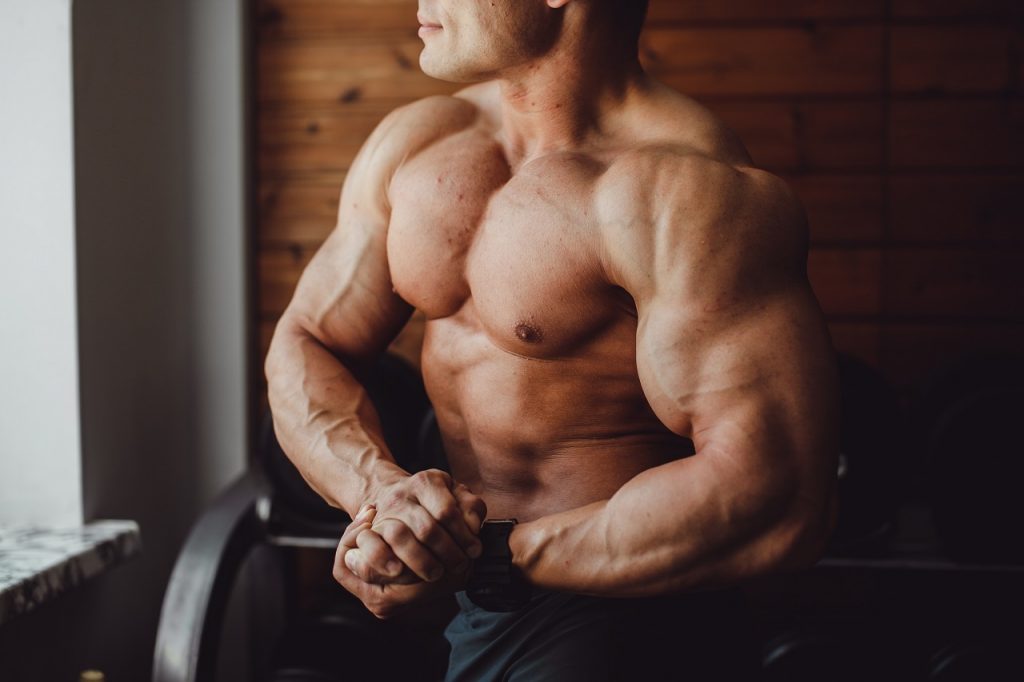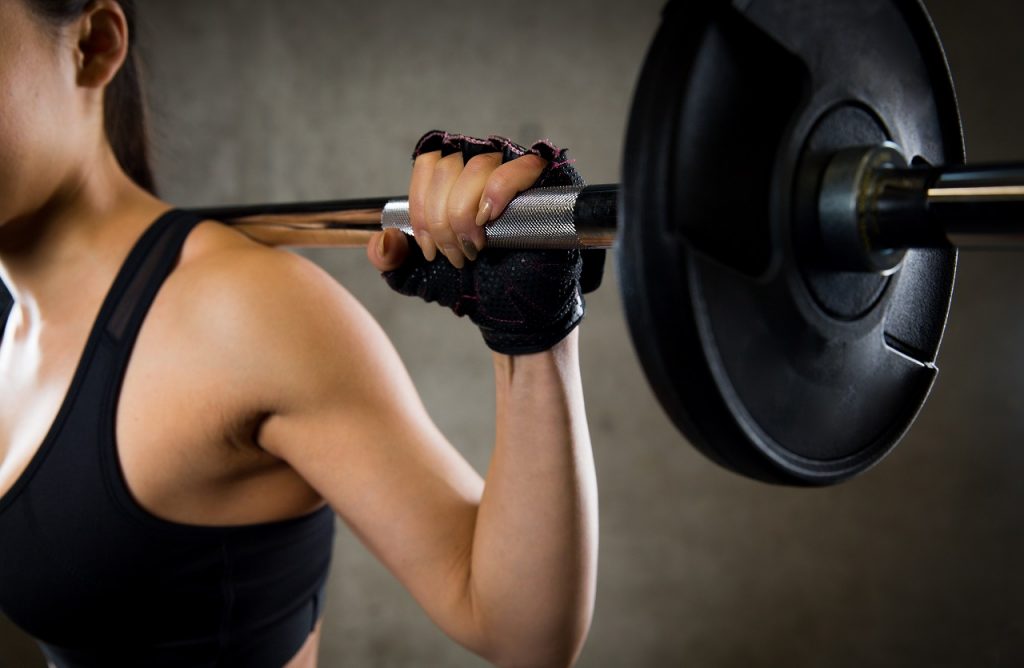 Body building has always fascinated me. My weight training journey began at the age of 16 and since then my goals have been very clear – building muscles and lifting weights! They became my passion. But I realized that just lifting weights to achieve a fit body was not the solution. Anything to do with fitness requires dedication and hard work coupled with smart eating and proper rest. This ultimately helped me achieve the results I was seeking.
Body building has always fascinated me. My weight training journey began at the age of 16 and since then my goals have been very clear – building muscles and lifting weights! They became my passion. But I realized that just lifting weights to achieve a fit body was not the solution. Anything to do with fitness requires dedication and hard work coupled with smart eating and proper rest. This ultimately helped me achieve the results I was seeking.
You must be wondering how I managed to achieve what I was seeking. Well, the idea germinated in my mind after I watched a movie, ‘Pumping Iron’ starring Arnold Schwarzenegger – my body building idol. Arnold is perhaps the greatest bodybuilder of all time! It was his personality and muscles that I admired and got kicked about lifting weights.
It’s funny – I am half as tall as him, yet I wanted to have a body like him. I set out on the path of building muscles. Within a short period of time, I learned the techniques and secrets of building muscles – which I am about to share with you.
For many of us, gaining muscle would mean spending countless hours in the gym and we seldom think a good diet is important. Remember that our body needs calories and nourishment to feed growing muscle mass and to adjust to varying amounts of activity.
I am going to tell you about building muscles through a three tier process namely proper diet, good exercise and good rest. Each of these tiers is equal and important. Let us take a closer look at each of these processes.
1. Proper Diet
To build muscles you need a proper diet that consists of micro and macro nutrients. Micro nutrients are vitamins and minerals whereas macro nutrients are a combination of protein, carbs and fat. Eating each of these micro and macro nutrients in the right quantity is important to build proper muscle mass.
Just pumping iron or what we call ‘lifting heavy weights’ in the gym does not serve the purpose. One needs to create a proper balance between the two.
1.1 Protein
One needs to eat sufficient amounts of protein to build good muscle. The rule of thumb is that an average person needs one gram of protein per kg of his body weight to maintain his muscle mass, skin and hair. But an individual who is exercising needs almost 1.5 to 2 grams of protein per kg of his body weight to build muscles. For example, if you are 150 lbs(pounds) or 68kg, you should eat between 150 and 225gm of protein each day if you want to consistently gain muscles.
Proteins are found in eggs, meat, fish, cheese, milk and soya beans. Muscles are active tissues, unlike fats. Like every active thing, muscles also need proper maintenance. In order to maintain muscles, the body needs to burn calories and that’s one reason why our basal metabolic rate (BMR) goes up. More the muscle mass in the body, more the BMR level. Increase in BMR level avoids gaining fats in the body and is very helpful for fat loss as well.
1.2 Carbs
Including carbohydrates in your diet in the morning and post workout is essential. The primary function of carbs is to provide energy. Carbs intake should be monitored very closely. One gram of carbs gives 4 calories. A number of carbs that get utilized as energy and the extra carbs that are still present, get stored as fat.
In order to avoid carbs getting stored as fat, we need to limit their intake. You can get Carbs from Sugar which provides the energy required for daily activities. Sugar may be available in three forms, lactose, fructose, and sucrose obtained from milk, table sugar, and fruits respectively. Carbs from Sugar Starch can be found in rice, beans, peas, and other grains. And lastly, carbs from fibers. Fibrous foods help in quick digestion of food and can found in some green vegetables, whole grains, peas, dry beans, bran, and soya beans etc. Fiber is also good to remove waste from your body.
1.3 Fats
Most people are of the opinion that fat is our enemy. Although, it gives 9 calories per gram. That’s much compared to carbs and proteins. The function of fats is to give energy during an emergency such as when the glucose level of the body dips to a low and there is no source of energy (Adenosine Tri Phosphate) and there is no food available in the body. In such a case, the body uses stored fat as the source of energy for that period of time.
You can get fats from olives, peanuts, sunflower, fish, nuts, flaxseeds and pumpkin seeds, soy products such as tofu or soy milk. Fats build healthy cells. Without a healthy cell membrane, the rest of the cell cannot function. Fats help the body use vitamins. Vitamins A, D, E, and K are fat-soluble vitamins, meaning that the fat in foods helps the intestines absorb these vitamins into the body. Therefore the diets should contain carbs, proteins and fats. You can get vitamins from the inclusion of green vegetables such as spinach and broccoli.
1.4 Water
It is the other important nutrient that is important for our body. One who is exercising should always hydrate himself or herself well. Water provides cushioning and lubrication between joints. Pain problems around joints are a very common among bodybuilders and strength athletes. Maintaining hydration and joint health is a very important part of your training over the long haul.
2. Proper Exercise
The second tier of building muscles is through proper exercise. Without exercise, it will be impossible to build huge muscles. When we exercise there is a wear and tear process that takes place within the body and the immediate reaction of the body is to repair those muscles.
The greater and deeper the damage to the muscle, the bigger and stronger the muscle will be repaired. It is therefore important to schedule the exercise program in order to achieve great results. Weight training should be done 3-4 days a week and this should be coupled with cardio exercise on the balance days of the week when you are not weight training. With weight training, you will be able to build muscles and get stronger. With cardio, you will be strengthening your lungs and heart and it will help you increase your stamina.
3. Rest and Recovery
This is the last and final tier of building muscles. This aspect is the most neglected tier of the three. You train hard in the gym, nourish your body with proper nutrition but if you do not give enough time for your body to recover through proper rest, the body will not utilize the nutrients in a proper manner to build muscles. After a hard day’s work when you finally go to sleep, that’s when the damaged and tired muscles get repaired. One needs to sleep for at least 7-8 hours to obtain good results.
Muscle can only get stronger and bigger by stimulating it through hard exercise, helping it recover with high-performance nutrition and giving it rest.
Disclaimer: Before making sudden changes in your lifestyle, you may want to consult your doctor and trainer
If you found this article helpful and would like to read more on fitness, click here. Additionally, you can also join a live, interactive workout session with an expert by booking a GOQii PRO class through the GOQii App.
What were your key takeaways from this article? Let us know in the comments below!
#BeTheForce
 If a woman lifts weights, does she bulk up like a man would? Will it change her appearance to a more muscular one like those guys at gyms who rip through every piece of heavy equipment they can get their hands on? Very few women desire that bulky or ripped look but those who don’t, tend to avoid using weights at all.
If a woman lifts weights, does she bulk up like a man would? Will it change her appearance to a more muscular one like those guys at gyms who rip through every piece of heavy equipment they can get their hands on? Very few women desire that bulky or ripped look but those who don’t, tend to avoid using weights at all. In the present day, our lifestyles have changed drastically. It’s not just our lifestyle but our working style as well. Being glued to a laptop or a system without moving for hours has become the current trend. We work for nearly 10-12 hours seated on a chair with minimal movement for lunch or to get fresh.
In the present day, our lifestyles have changed drastically. It’s not just our lifestyle but our working style as well. Being glued to a laptop or a system without moving for hours has become the current trend. We work for nearly 10-12 hours seated on a chair with minimal movement for lunch or to get fresh. How often do we hear people say, “I am so stressed”? Given the current pandemic scenario, the lockdown and the threat of new variants, we’re sure you might have heard a lot of people say this. While the stress is reasonable, do you know what causes it? Is it the pressure of working from home thwarting your work-life balance, is it the news or could it be the excessive release of stress hormones? If you weren’t aware, just as there are hormones that make you feel good, there’s a stress hormone called Cortisol but it’s not all bad.
How often do we hear people say, “I am so stressed”? Given the current pandemic scenario, the lockdown and the threat of new variants, we’re sure you might have heard a lot of people say this. While the stress is reasonable, do you know what causes it? Is it the pressure of working from home thwarting your work-life balance, is it the news or could it be the excessive release of stress hormones? If you weren’t aware, just as there are hormones that make you feel good, there’s a stress hormone called Cortisol but it’s not all bad. Given how high stress levels have been lately due to the pandemic, it is important to manage stress by managing spiking cortisol levels. Dealing with Cortisol can be tricky. If dealt with proper techniques and supplements, one can get the Cortisol levels under control. Here are a few tips to help you out:
Given how high stress levels have been lately due to the pandemic, it is important to manage stress by managing spiking cortisol levels. Dealing with Cortisol can be tricky. If dealt with proper techniques and supplements, one can get the Cortisol levels under control. Here are a few tips to help you out:


